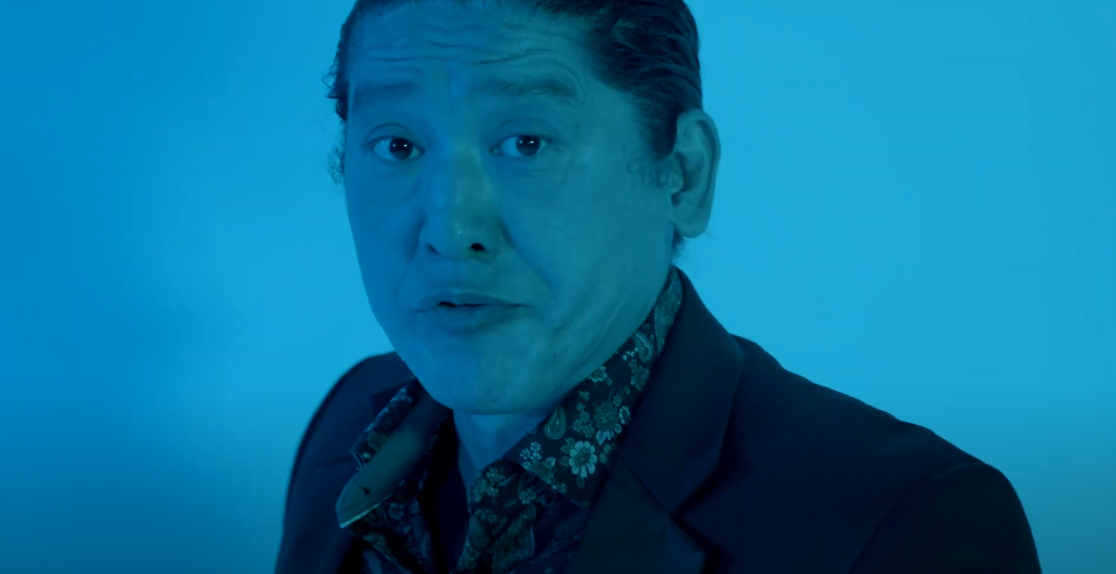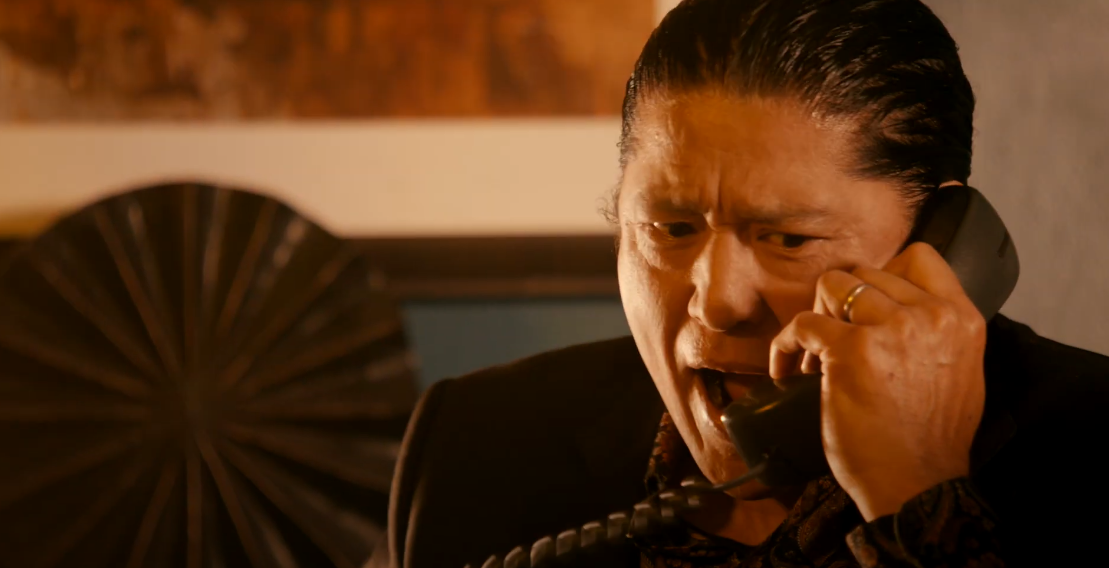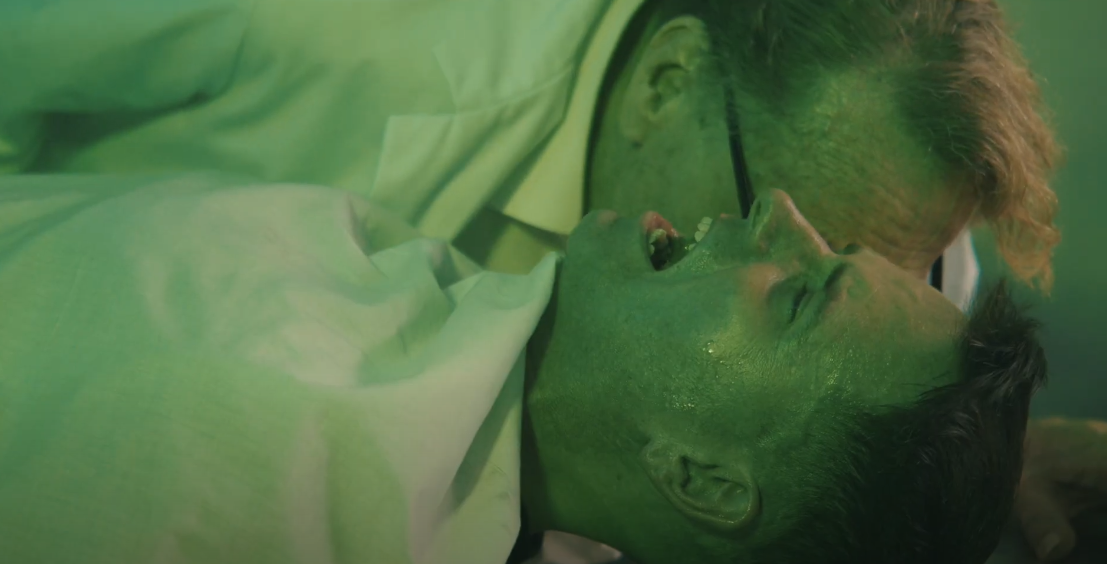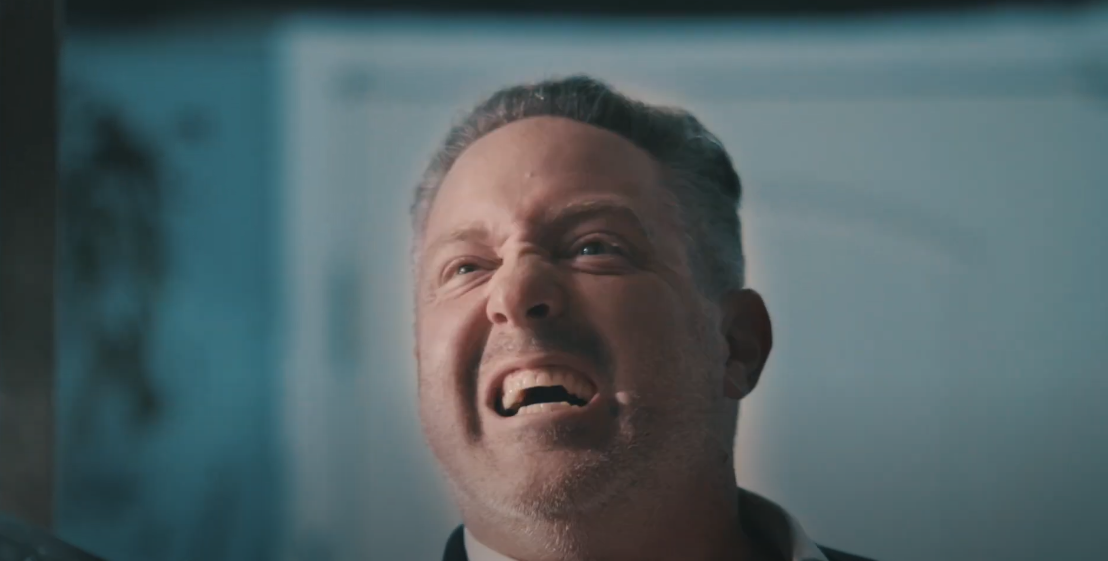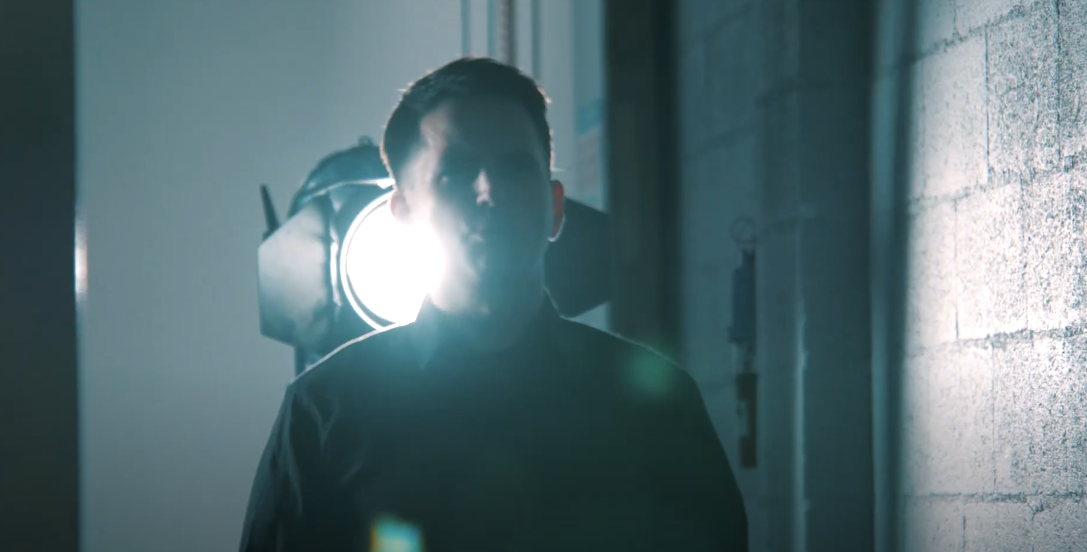Gregory Hatanaka’s Backfire is a 67-minute plunge into cult conspiracies, surreal dialogue, and a constant stream of classical music cues. Billed as an action-thriller about an undercover operative infiltrating a doomsday cult, the film is less about plot clarity than it is about creating a strange, fever-dream mood. For better or worse, it succeeds.
The story—or what can be parsed of it—centers on Pedersen (Louis DeStefano), a shadowy agent trying to dismantle a bizarre organization bent on world domination through sound. Sometimes this means weaponized vinyl, other times some vaguely explained “mimetic” audio poison. Joining him in this mission are Hans (Chris Spinelli), a disgraced cop, and Sona (Nicole D’Angelo), who occasionally seems to be a ninja. None of it really coheres, but part of the fun is trying to figure out if it was ever meant to.
Stylistically, Backfire feels like a half-step above the freewheeling “Zen Filmmaking” of Scott Shaw and Donald G. Jackson. The cinematography avoids total incoherence, yet the film still embodies that unmistakable “2020s digital nightmare” aesthetic—flat lighting, erratic cuts, and heavy reliance on stock-looking backdrops. Every so often, fight sequences pop up, but they’re clunky enough to register as unintentional comedy rather than tension.
What makes the film perversely watchable is the dialogue. Characters spout lines that feel like they were assembled from dream fragments, delivered with a two-second delay as if the actors themselves are trying to decode them. There’s also the repeated intrusion of Ravel’s Bolero and the return of “I’m Looking for a Friend” (a song recycled from Hatanaka’s Deadly Western), which adds to the surreal loopiness. The film constantly seems to be reaching for David Lynch–style disorientation, but mostly lands in baffling, hilarious nonsense.
If Backfire has a strength, it’s that it leans fully into its own awkwardness. The cast and crew take on multiple roles behind the scenes, and while the end product is far from polished, there’s a scrappy energy in seeing everyone pitch in. The film is, at times, genuinely funny—though whether or not that’s intentional is up for debate. The poster suggests a bigger, slicker production than what’s delivered, but what we do get is its own oddball entertainment.
Still, with Hatanaka credited on over thirty films, it’s difficult to forgive the amateurish feel. A first-time filmmaker fumbling through such surrealism might be excused; a veteran director leaning into the same tricks feels less like experimentation and more like stagnation.
Ultimately, Backfire is one of those movies that’s “bad but fascinating.” It doesn’t work as an action-thriller, but as a midnight-movie curiosity, it earns a strange sort of charm. Just be prepared for an overdose of Bolero.
Verdict: A surreal, sloppy, yet oddly entertaining mess. Best enjoyed with friends who appreciate unintentional comedy.
Jessie Hobson

